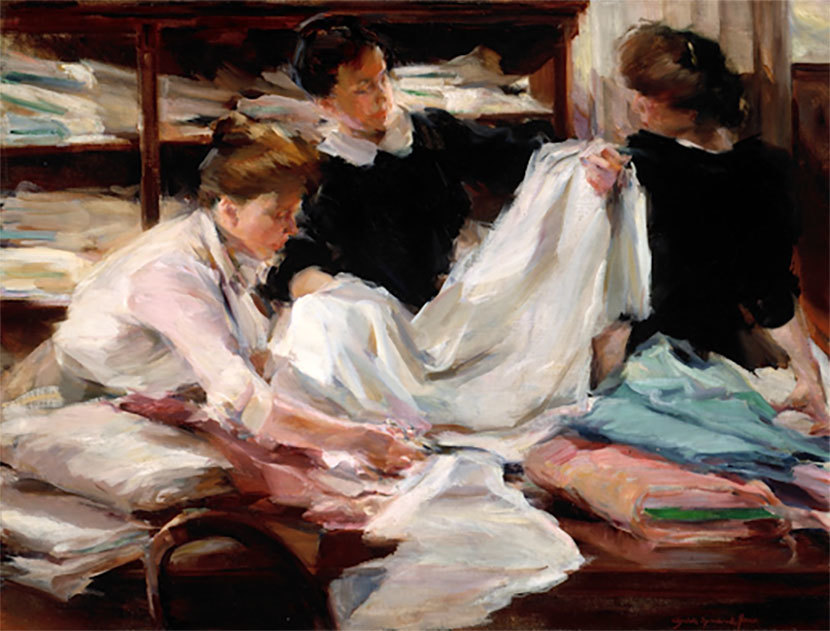O. Henry (1862–1910)
From O. Henry: 101 Stories

William Sydney Porter, better known as O. Henry, was born 159 years ago, on September 11, 1862.
One nearly forgotten legacy of his stories was their exposure of the hardships experienced by working women. Several of his tales and sketches published between 1904 and 1906 featured female employees and their financial distress—but when he ventured into the department store, he ran afoul of the New York newspaper that employed him.
“Some years ago the World was under contract to publish every week a short story by O. Henry,” Upton Sinclair recalled. “They received the manuscript of what posterity has come to recognize as O. Henry’s masterpiece, ‘The Unfinished Story’; they refused to publish this ‘Unfinished Story,’ because it was injurious to department stores!” At the time, such retailers were far and away the largest advertisers in New York newspapers. Showcasing the deplorable conditions experienced by underpaid “shop-girls,” the story appeared instead in McClure’s, the magazine issued by the publisher of his books.
Other than castigating employers for not paying a livable wage to working class women, Porter did not advocate specific policies or actions. Yet his stories had their effect; he incorporated in their plots the simple mathematics that made surviving on five dollars a week impossible. Magazines and newspapers at the time pointed to O. Henry’s stories when discussing the plight of “shop-girls.” One editorialist wrote, “Across every counter of the New York department store is the shadow of O. Henry.” When Theodore Roosevelt became involved in a New York City campaign during 1912–13 to improve the wages of female store and office workers, he was reported to have attributed his awakening to the O. Henry stories that had appeared nearly a decade earlier.
We present as our Story of the Week selection “An Unfinished Story,” the tale that, a century ago, was considered his “masterpiece.”



